8 Long-Lasting Cut Flowers You Can Grow In The Garden
What could be more rewarding than growing a cutting garden filled with beautiful flowers? To get maximum enjoyment from your blooms, however, it's important to choose varieties with a long vase life. We reveal the loveliest varieties that will endure in cut flower arrangements for up to two weeks.
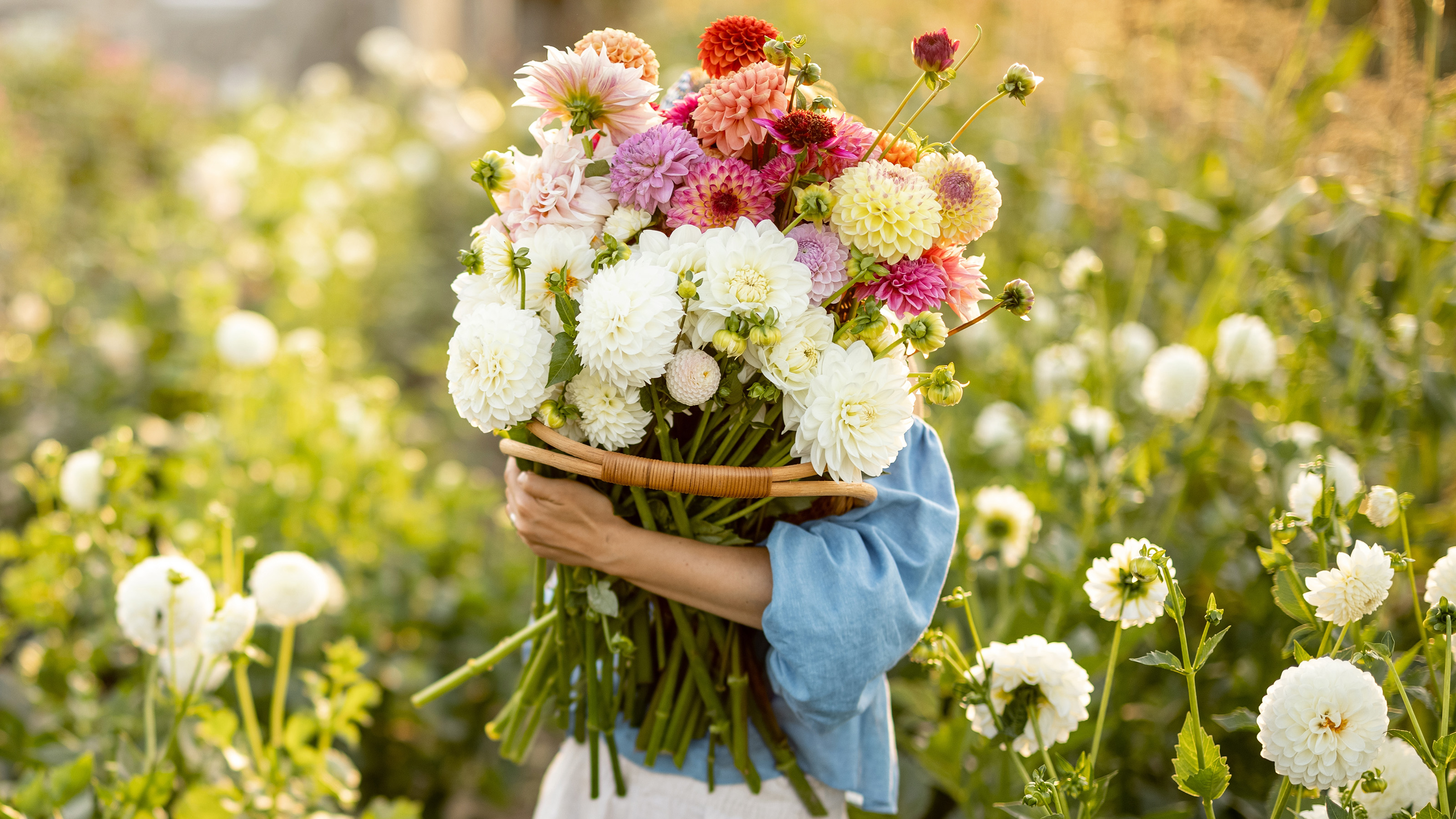
If you are passionate about flowers, then nothing beats growing a cutting garden. It is a delight to putter among beautiful blooms, selecting and clipping the prettiest stems, and then artfully arranging them in a vase.
Yet, it is so disappointing when freshly cut flowers begin to fade and die within a couple of days.
When choosing plants for a cutting garden, opt for long-lasting cut flowers to ensure your vision and hard work aren’t all for nothing. Some flowers will live on for two weeks in the vase, and make enduring additions to floral arrangements. That’s what a cutting garden is for – to display your labor of love for all to see.
When harvesting cut flowers, use sharp, sterilized gardening shears. Snip them when temperatures are cool, to ensure the flower stems remain hydrated. This usually means early in the morning.
We’ve rounded up the loveliest, longest-lasting flowers you can easily grow in your cutting garden.
1. Dahlias
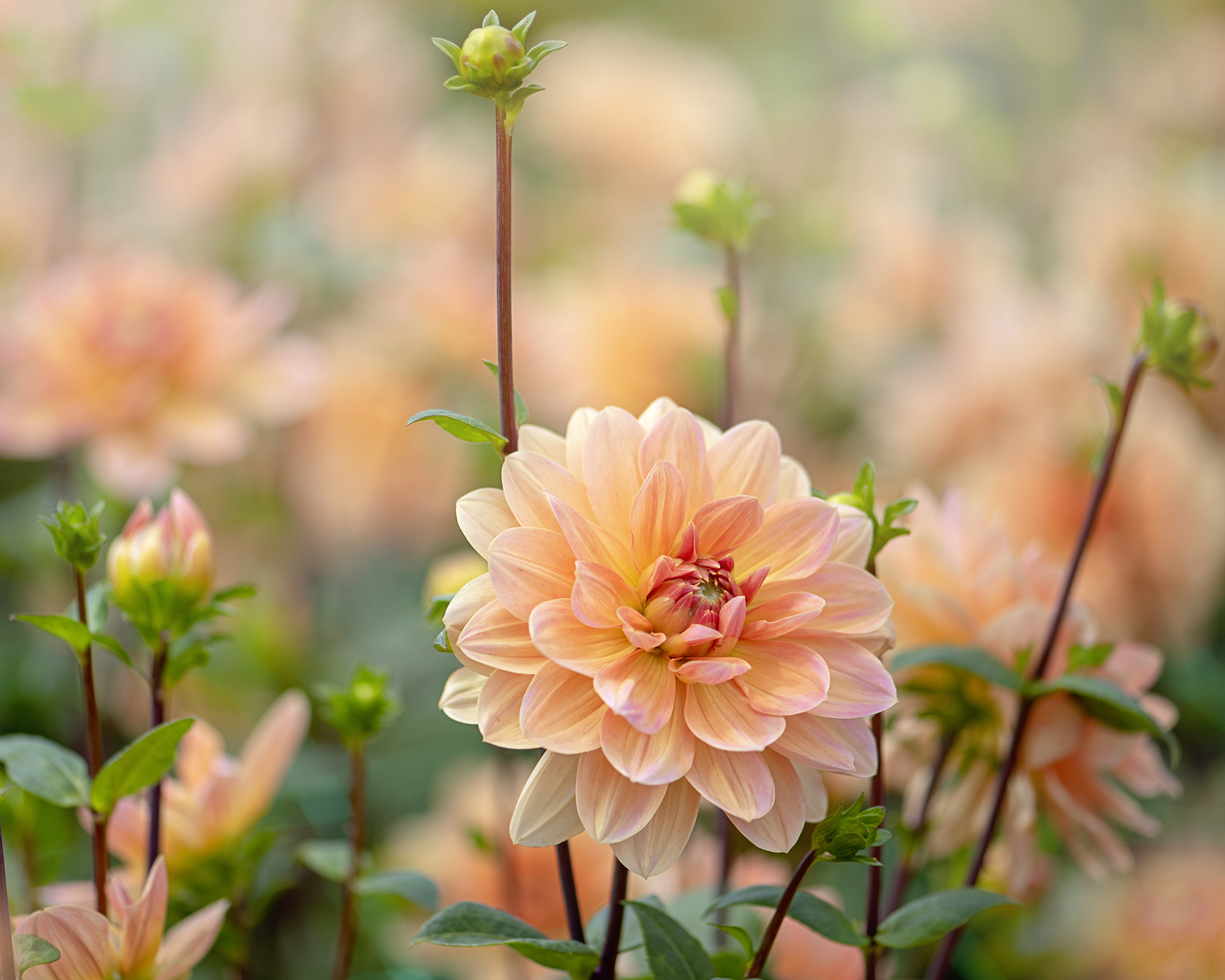
Dahlias come in so many colors, shapes, and sizes – from miniature pom-poms to dinner plate-sized blousy blooms. The flower heads span a range of 2 inches (5cm) to over a foot (30cm) across.
With such variety, it's no wonder there are dedicated dahlia associations in many cities.
Gardening tips, videos, info and more delivered right to your inbox!
Sign up for the Gardening Know How newsletter today and receive a free copy of our e-book "How to Grow Delicious Tomatoes".
Dahlias are hardy in USDA planting zones 8-10, but they can be grown in cooler zones if you dig them up and store the tubers over winter. They love the sun and well-draining soil and will reliably bloom from late summer to fall, creating the most fabulous bouquets.
Bear in mind that when you cut dahlias, they won’t open up from a bud like some cut flowers. Cut them at their peak when they are gloriously fully unfurled. For this, they will reward you with spectacular color in a vase of water for up to two weeks.
2. Oriental Lilies
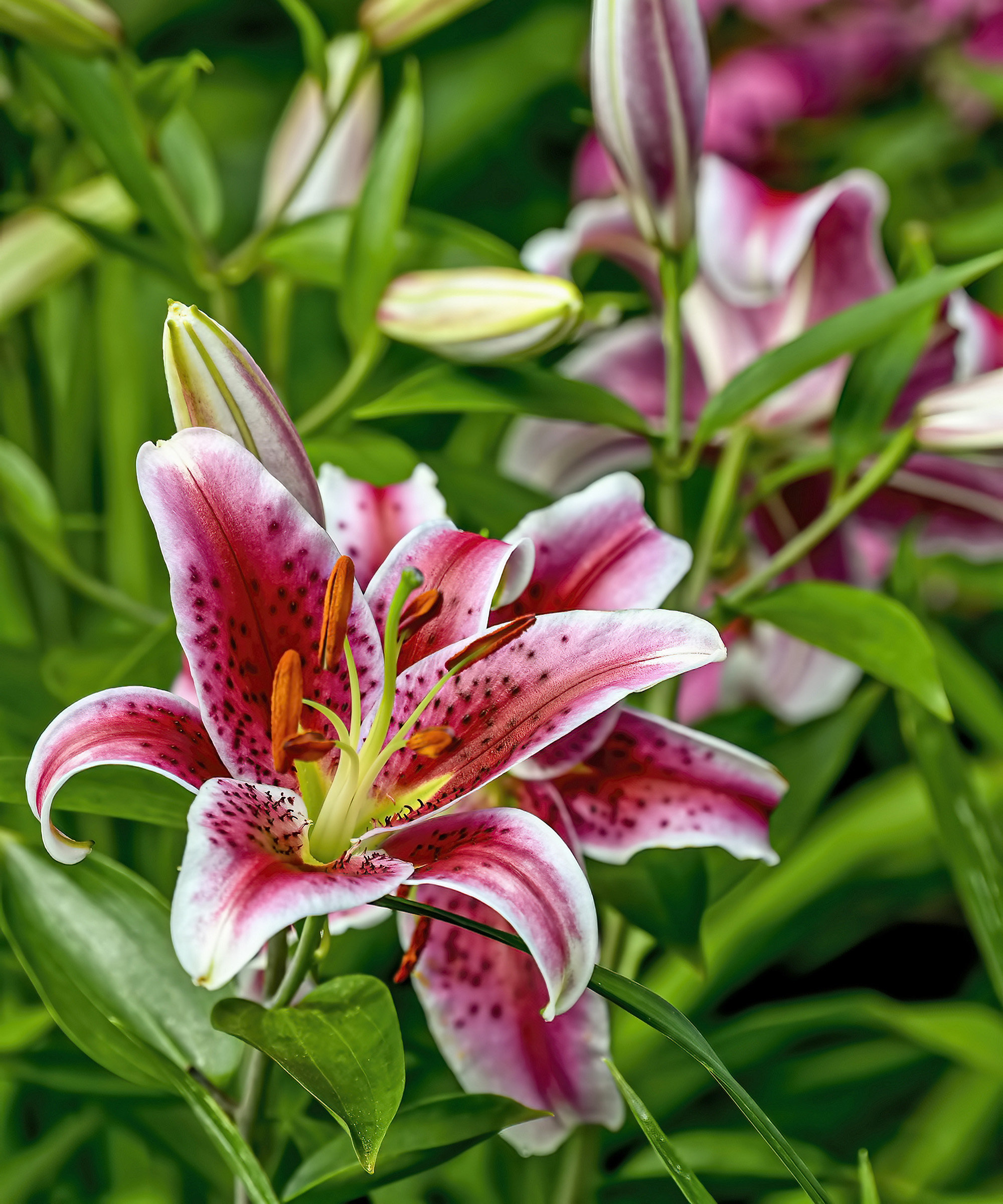
You can smell oriental lilies before you see them. When used in cut-flower arrangements, they exude an intense fragrance that perfumes a whole room.
Oriental lilies can be grown in USDA zones 5-8. They require well-draining soil and full sun to thrive. Flowers appear in mid-summer, and once spent, will not bloom again.
To have a successive supply of these exotic-looking beauties, grow Asiatic lilies as well. They bloom first in early summer followed by oriental varieties in late summer. Asiatic lilies have no scent, so are a better choice for those sensitive to strong smells. Plant them in an area of filtered sunshine in moist yet well-draining soil.
Cut lilies are a bit of a water hog and their vase should be replenished every day. These long-lasting cut flowers will last for up to two weeks in a vase of water.
Keep in mind that lilies are toxic to cats, although deer will gobble the bulbs happily enough.
3. Hydrangeas
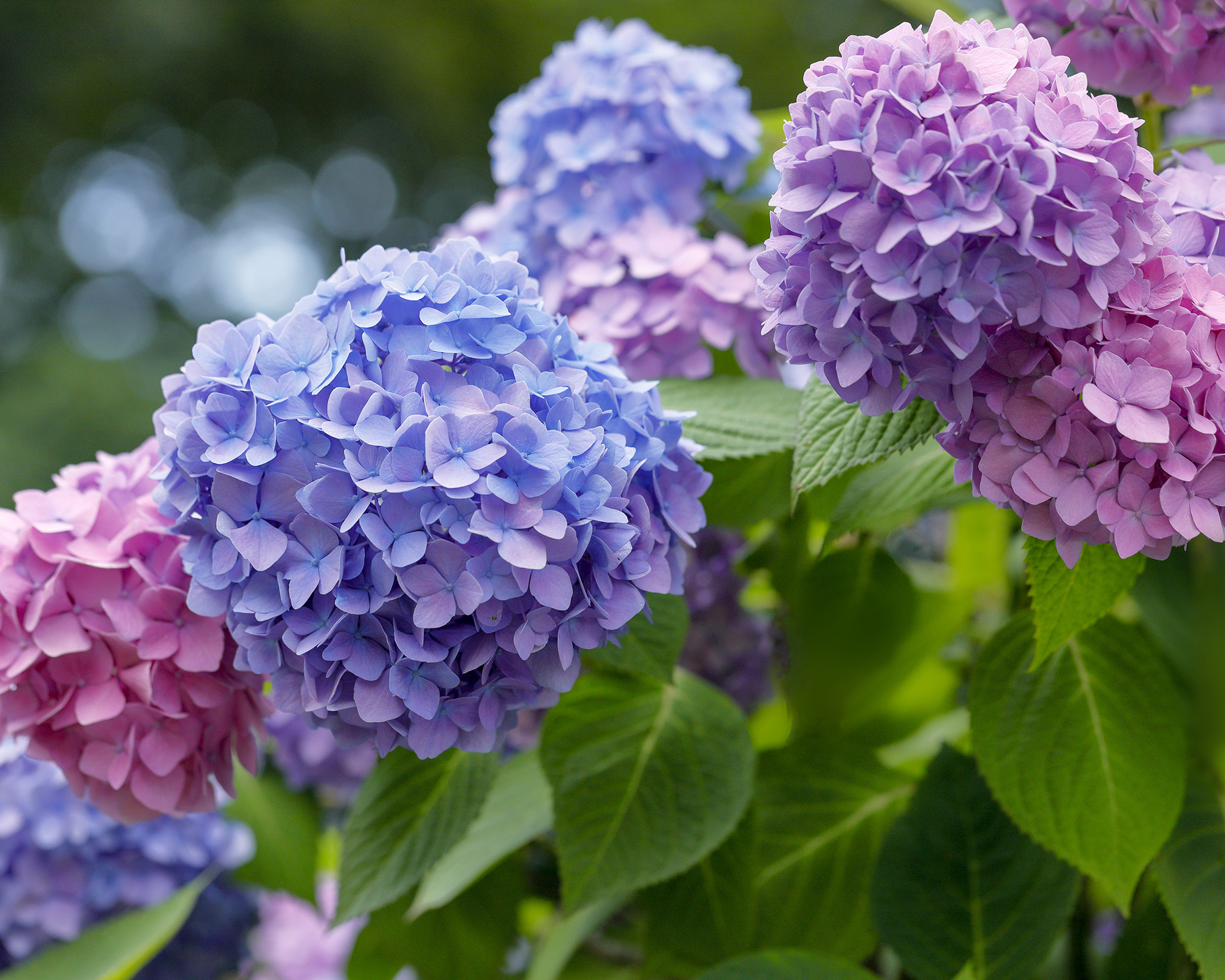
Hydrangeas are gorgeous in cut flower arrangements, each head a mass of individual blooms.
Hardy in zones 5-9, hydrangeas are prolific bloomers that like dappled shade and moist, well-draining soil.
They bloom on old growth in hues of pink, blue, purple, and red. Flower color is dictated by the acidity of your soil: acid soil fosters blue or purple, while neutral soil yields pink blooms.
Except for oakleaf hydrangeas, all varieties of this perennial shrub do well when grown in containers.
While hydrangeas last up to nine days in the vase, they are a bit picky about being cut flowers. To make hydrangeas last longer, cut the blooms at an angle from the plant, and then immediately dip the cut end into boiling water for 30 seconds or dip it into alum.
4. Chrysanthemums
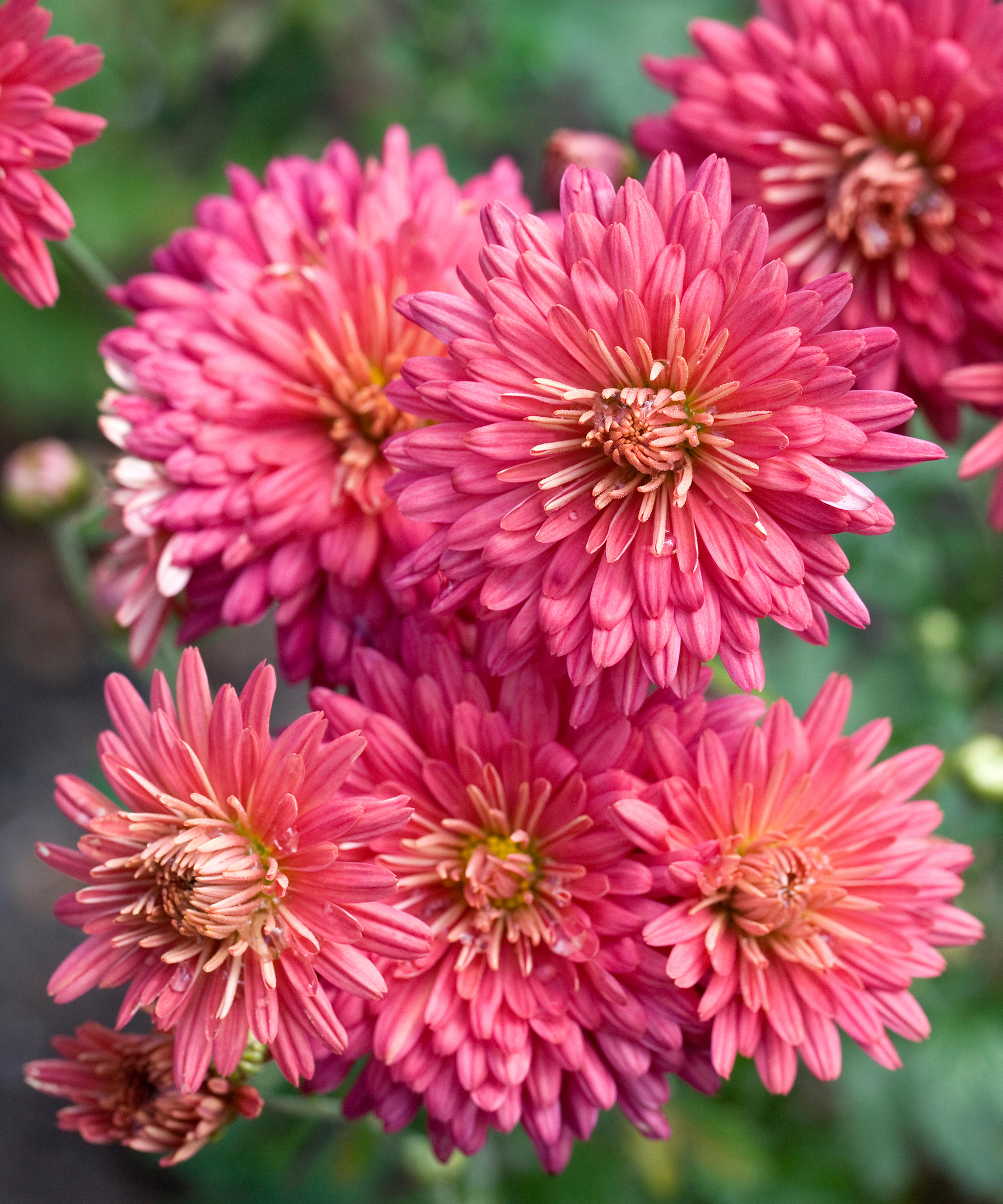
One of the most common fall flowers, the chrysanthemum can last as a cut flower for up to two weeks. It’s really no wonder since this perennial is known for its hardiness.
Mums can be grown in USDA zones 5-9 and indoors as flowering houseplants. They come in myriad colors and bloom shapes, from button to spider to anemone.
Plant in fertile, well-draining soil in full sun. Most species bloom throughout the fall although some varieties will flower from late spring into fall.
5. Zinnia
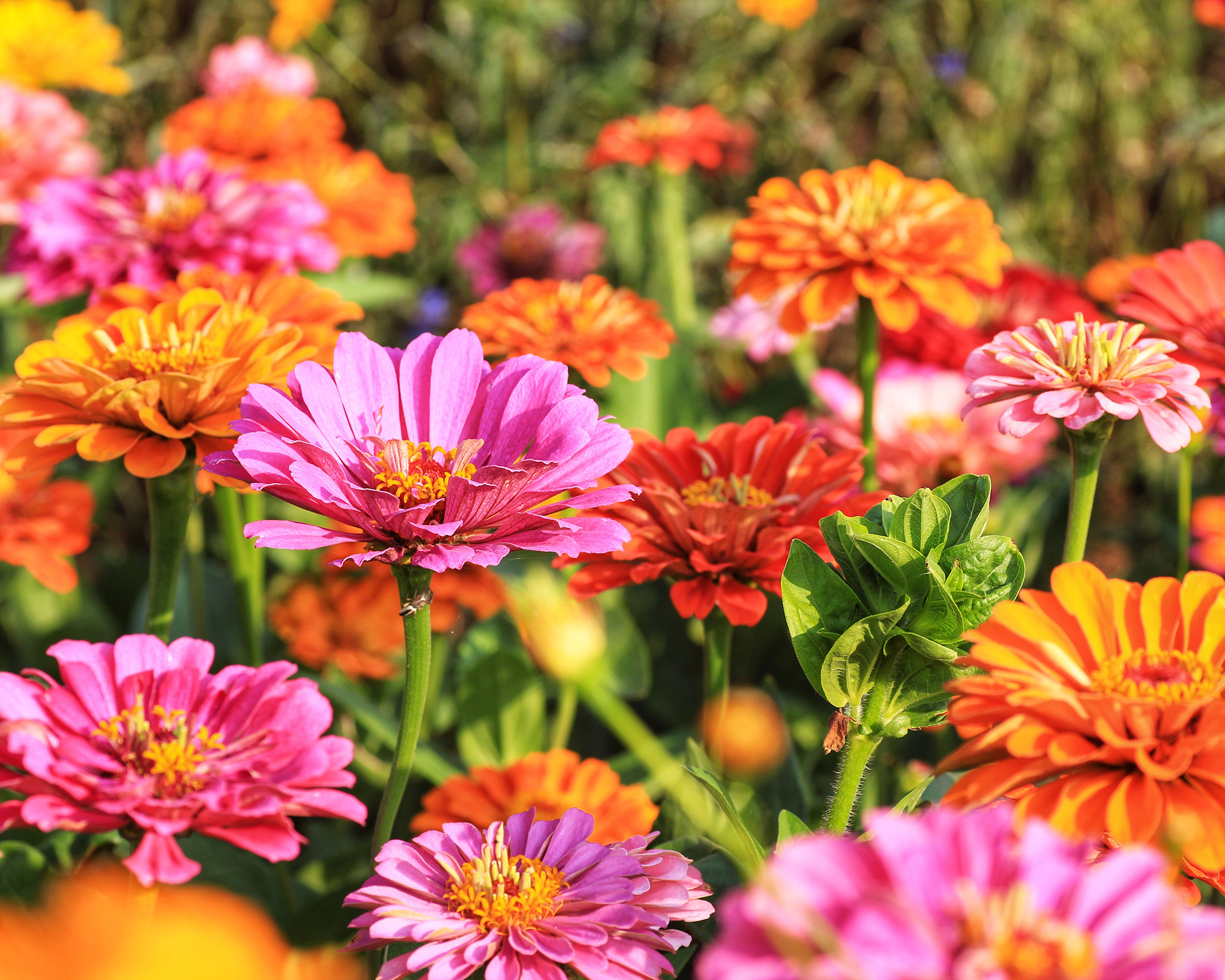
A mass planting of zinnias in bloom is something to behold. Flowers come in hot colors of neon pink, orange, and red. They are prolific long bloomers that last in a vase for 7-12 days.
While annuals, zinnias are easy to direct sow by seed, making them an inexpensive option for a cutting garden. Once they get going, they put on a show from summer to the first frost.
Zinnias should be planted in an area of full sun with well-draining soil in USDA zones 3-11.
6. Alstroemeria
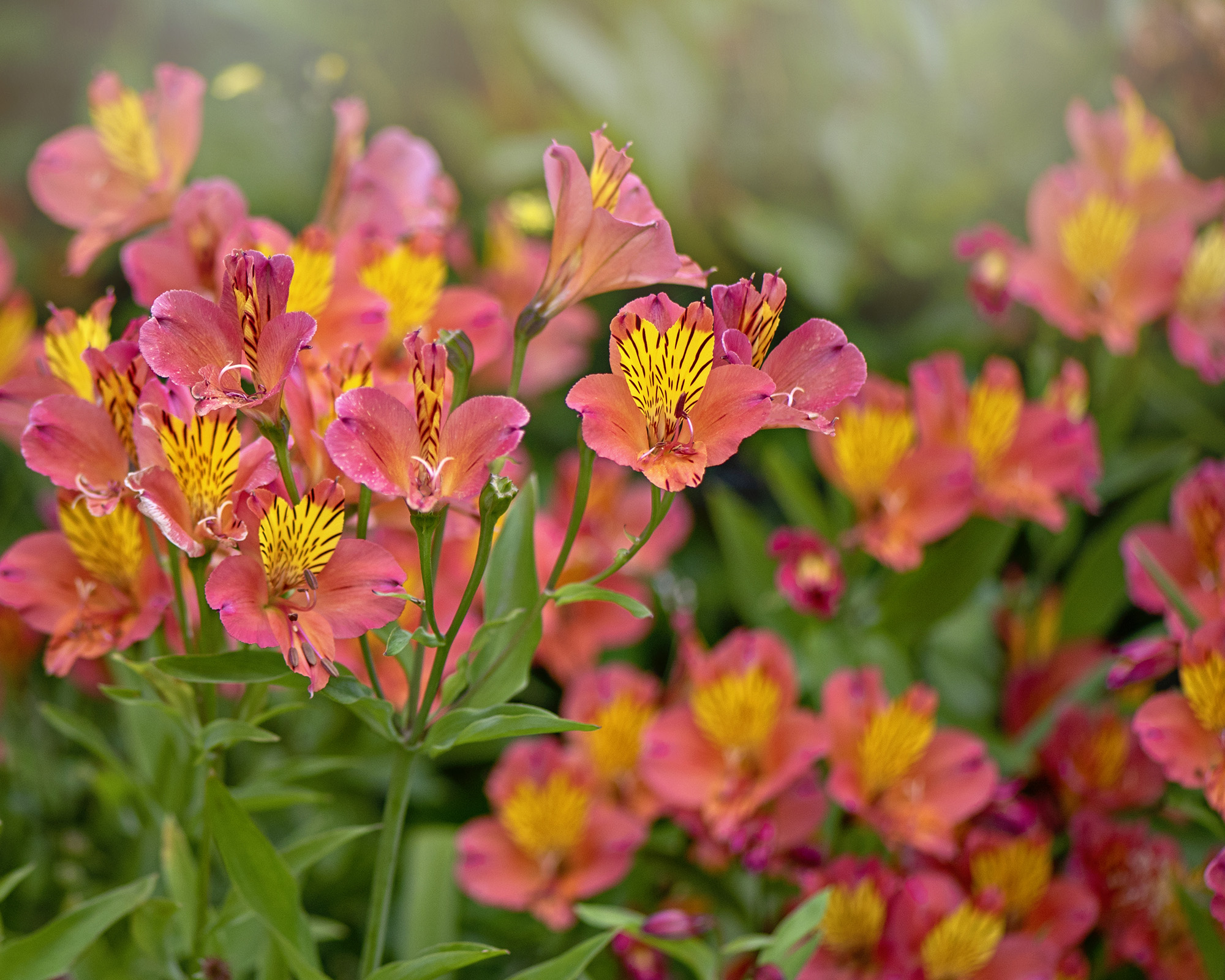
In store-bought bouquets, the last bloom standing is often an alstroemeria. It is one of the most long-lasting cut flowers. The reason behind this is that there are multiple flowers on each stem, which gives fullness to an arrangement and makes it seem like the flower is in continual bloom.
Also called the Peruvian lily, alstroemeria is a tuberous perennial native to South America. As such it can be grown in the warmer USDA zones of 6-10.
The exotic-looking flowers come in a multitude of colors, each accented with a complementary hue.
Grow plants in full sun in well-draining soil. A word of warning, however: alstroemeria has begun to naturalize to the extent that, while it isn’t classified as an invasive plant, it is advisable to grow it in a container to prevent excessive spread.
7. Allium
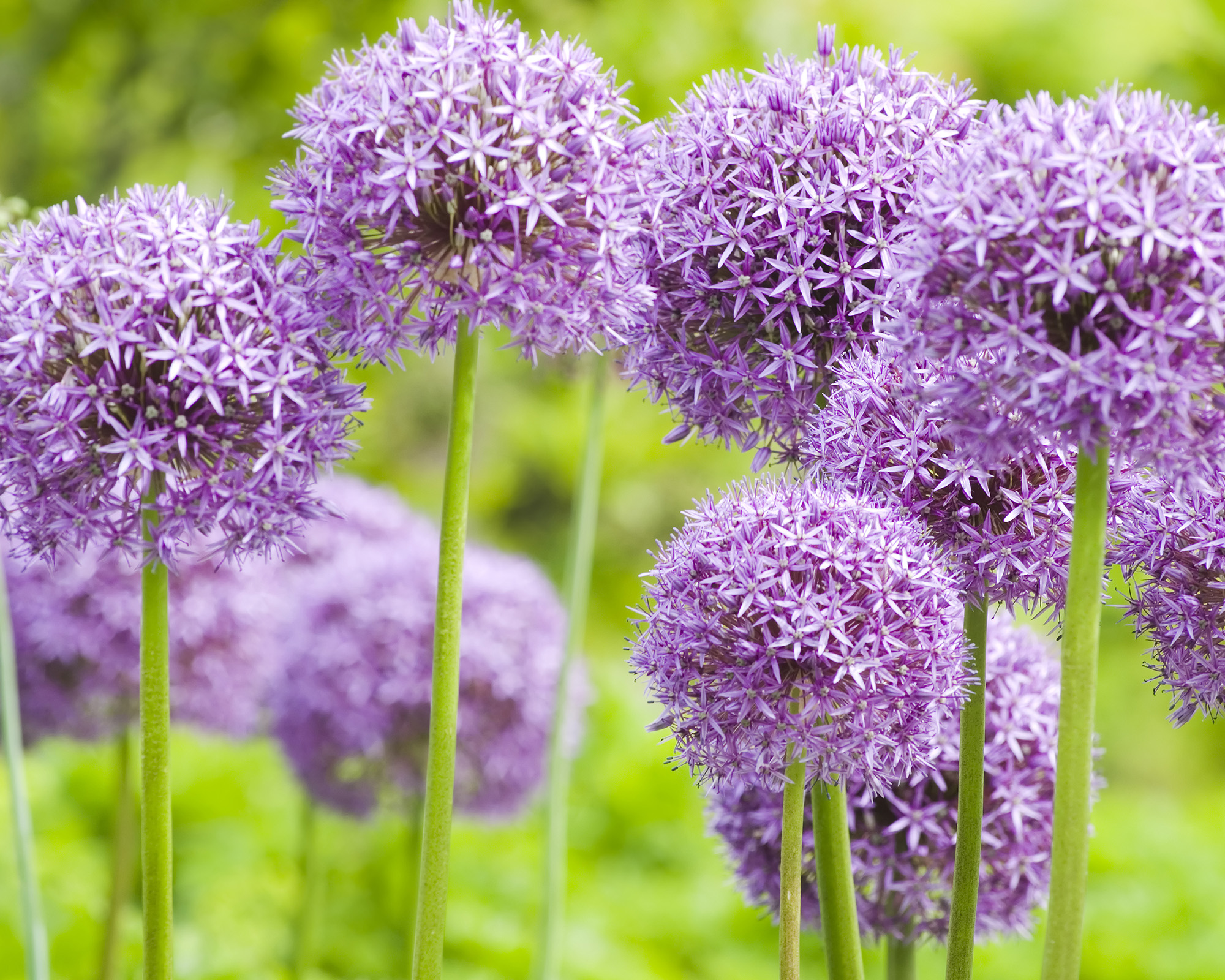
A bit of an otherworldly-looking bloom, allium is a terrific, eye-catching addition to cut flower arrangements. Some varieties grow to 4 feet (1.2m) in height so they can be used in taller arrangements or cut to any height desired. The rigid stems of allium mean that they won’t flop over the edge of a vase either.
Allium is a perennial grown from bulbs planted in the fall. Plant bulbs fairly deeply, 2-3 times their diameter in an area of full to partial sun with well-draining soil.
As to its use in cut flower arrangements, one caveat. Allium is a member of the onion family, so as pretty as the poofy purple heads look, they also give off a bit of an onion aroma.
8. Peonies
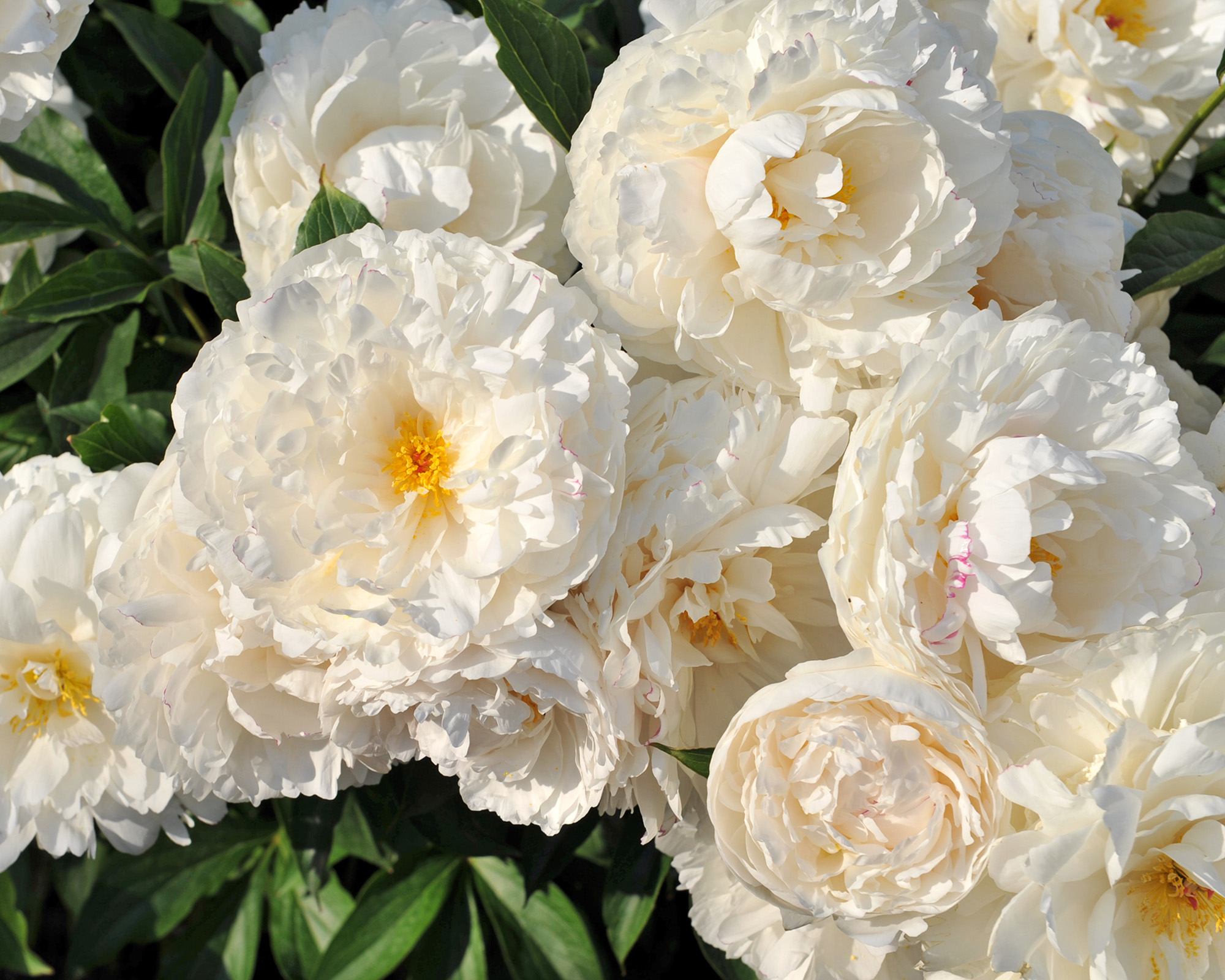
Peonies are popular in bridal bouquets and are just as romantic as roses – if not more so. For one thing, peonies have a shorter bloom time so their fleeting beauty should be treasured.
While they may not have a lengthy flowering time, they are incredibly prolific bloomers. Peonies come in pink, white, and red. Cut them at the bud stage and enjoy watching them open.
Plant peonies in full sun in fertile, moist yet well-draining soil with a neutral pH.
Peonies will last up to a week in the vase, but there is a way of extending the lifespan of cut blooms. Wrap a clipped bud in plastic wrap or newspaper, with both ends secured with a rubber band, and place it in the refrigerator. The buds can stay chilled for several weeks or by, some accounts, several months.

Amy Grant has been gardening for 30 years and writing for 15. A professional chef and caterer, Amy's area of expertise is culinary gardening.
-
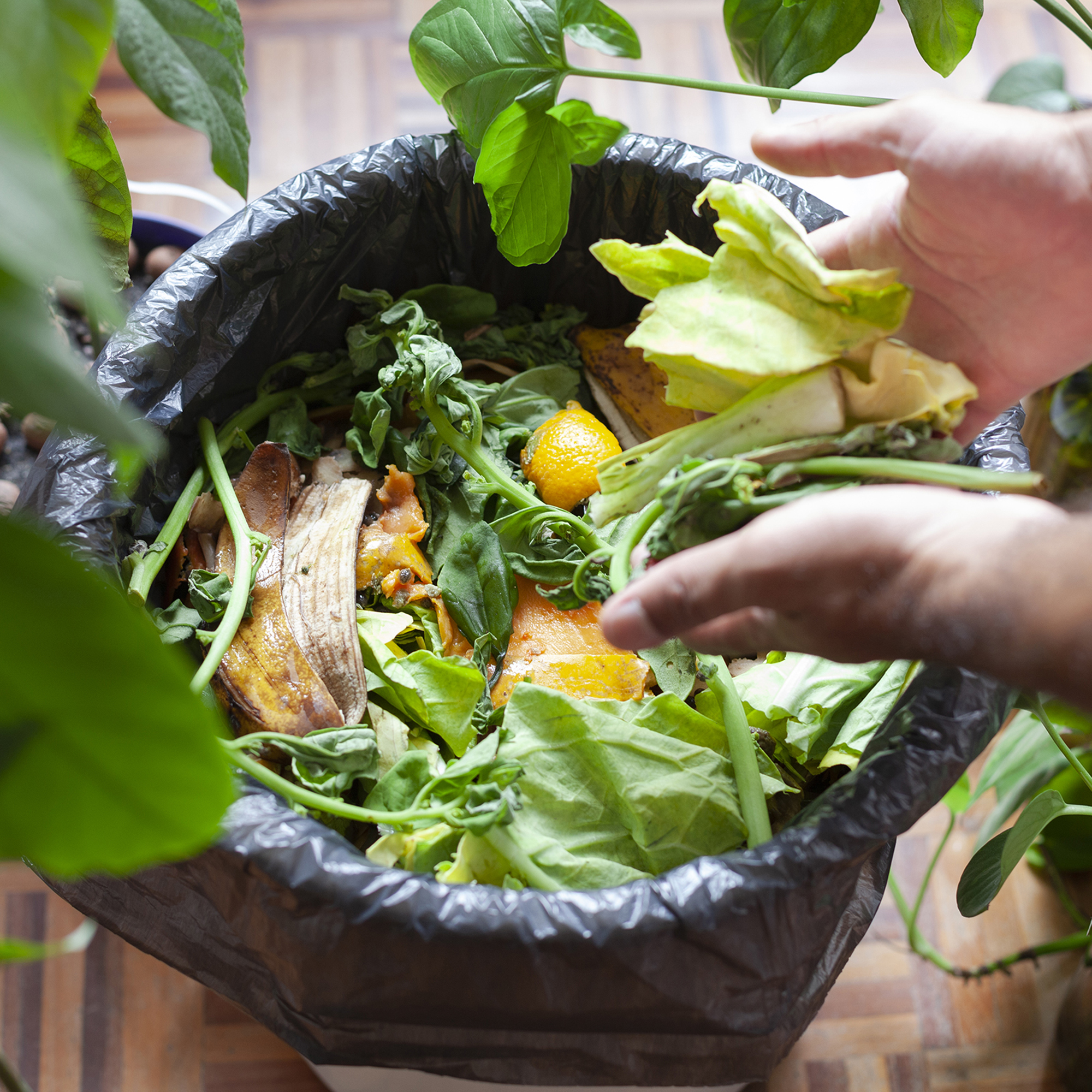 4 Superfast Composting Methods: Turn Waste Into Garden Gold In 30 Days Or Less
4 Superfast Composting Methods: Turn Waste Into Garden Gold In 30 Days Or LessTry the fastest composting methods to turbocharge your pile and transform kitchen scraps and garden waste into finished compost in just a few weeks.
By Mary Ellen Ellis
-
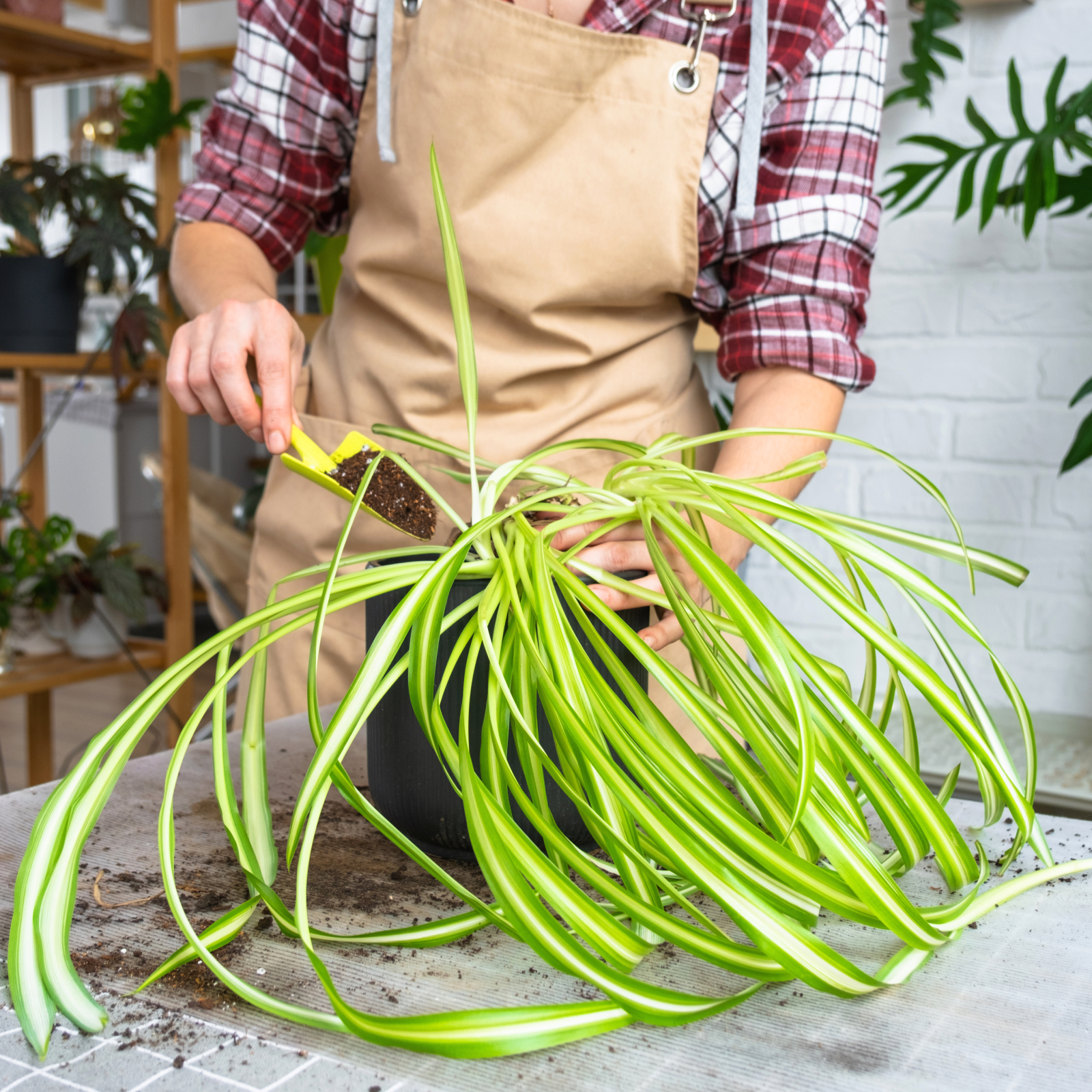 Best Spider Plant Soil – Complete Soil Guide And Expert Tips For Keeping Plants Happy
Best Spider Plant Soil – Complete Soil Guide And Expert Tips For Keeping Plants HappySpider plants are fun and easy plants to grow, but what is the best soil for a spider plant? Selecting the right soil is important so they can thrive.
By Bonnie L. Grant
-
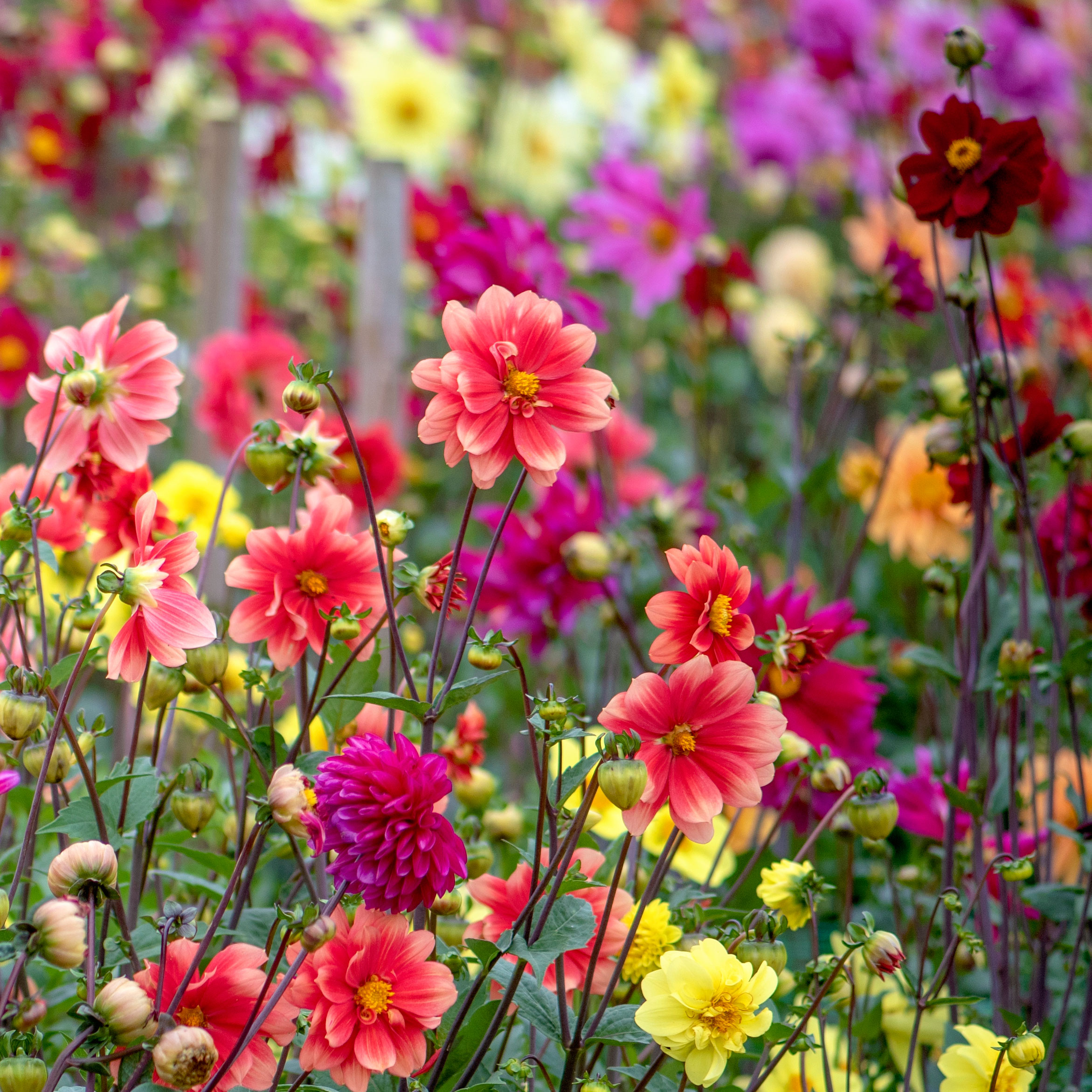 Cut Flower Garden For Beginners: 8 Easy Decorative Floral Plants For Newbies To Grow
Cut Flower Garden For Beginners: 8 Easy Decorative Floral Plants For Newbies To GrowAre you new to growing decorative florals for bouquets and ornamental displays? A cut flower garden for beginners is well within reach if you grow these flower seeds
By Tonya Barnett
-
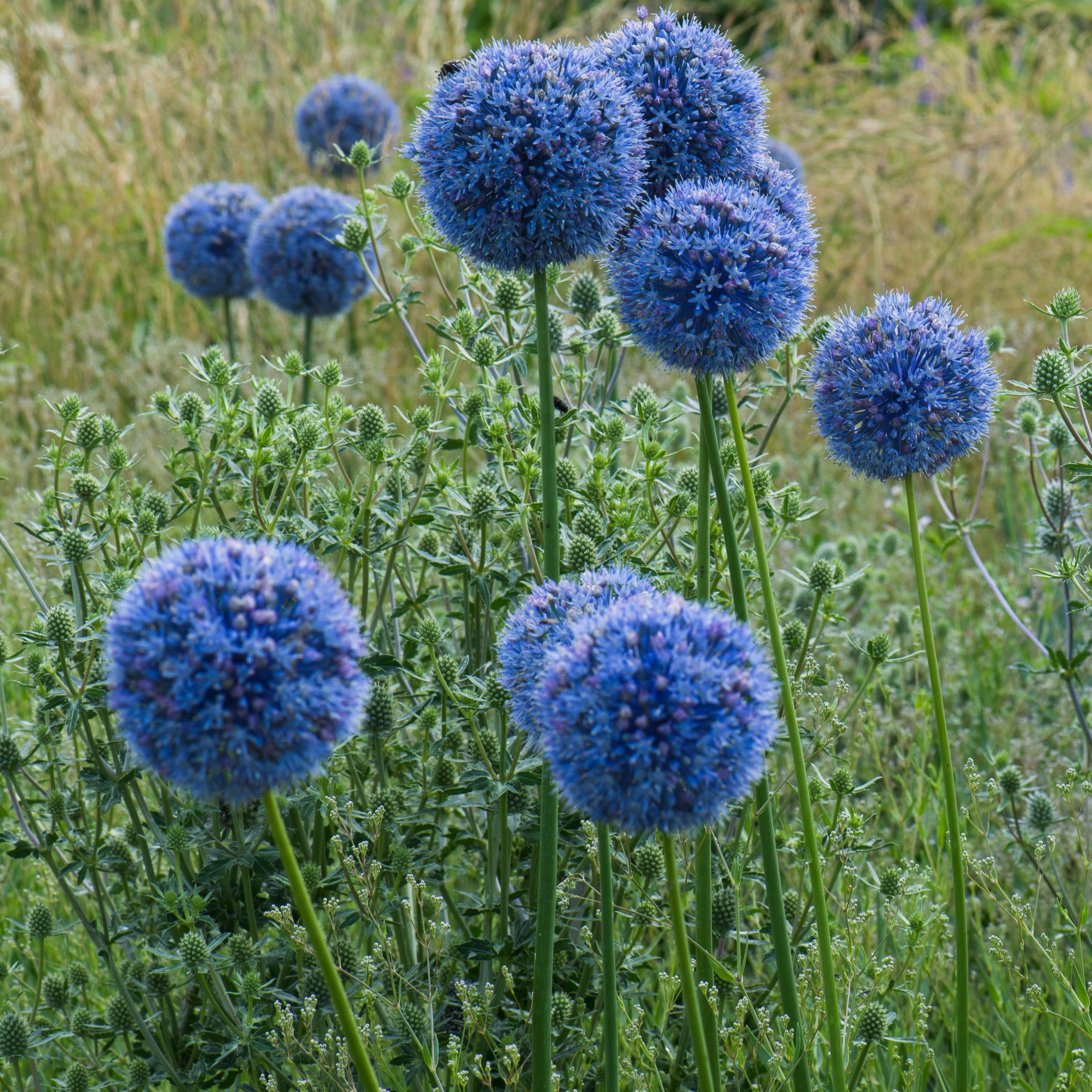 Want Blue Ornamental Onions That Look Unreal? Try These True Blue Allium Plants
Want Blue Ornamental Onions That Look Unreal? Try These True Blue Allium PlantsOrnamental alliums create majestic displays in gorgeous hues from violet to bright white – but if you fancy something otherworldly, try one of these blue allium plants
By Tonya Barnett
-
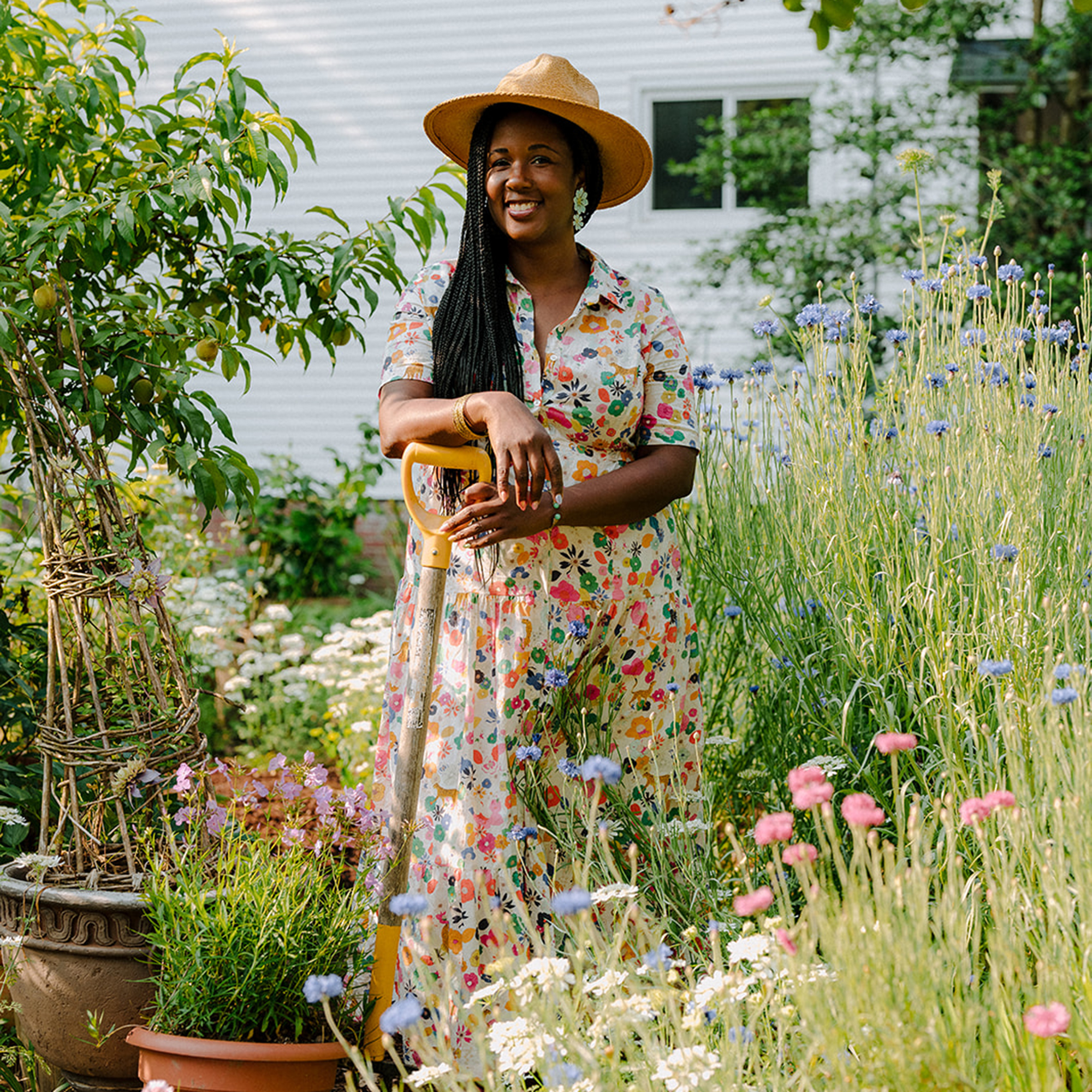 "I Turned My Floral Hobby Into A Thriving Business" – A Grower Shares Secrets For Success
"I Turned My Floral Hobby Into A Thriving Business" – A Grower Shares Secrets For SuccessMeet Dee Hall Goodwin, a professional cut flower farmer and dahlia fanatic, who turned her passion for growing and arranging flowers into a successful business. She wants everyone to share the floral joy.
By Karen Darlow
-
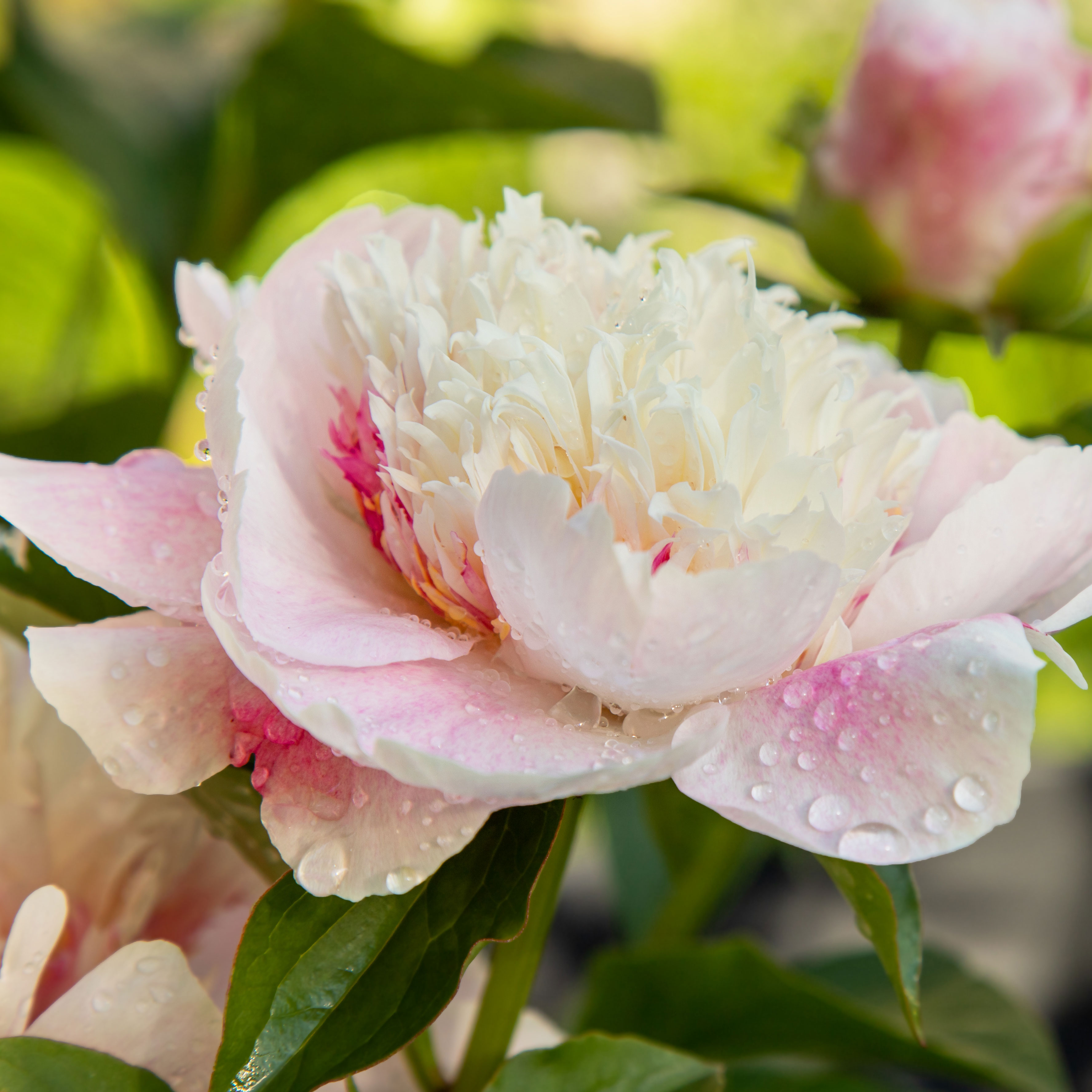 Peony Flower Meaning: Decoding The Symbolism Behind These Stunners
Peony Flower Meaning: Decoding The Symbolism Behind These StunnersThe exquisite charms of peonies have symbolized many things in history, woven into different cultures. We consider how peony flower meaning has adapted and grown
By Bonnie L. Grant
-
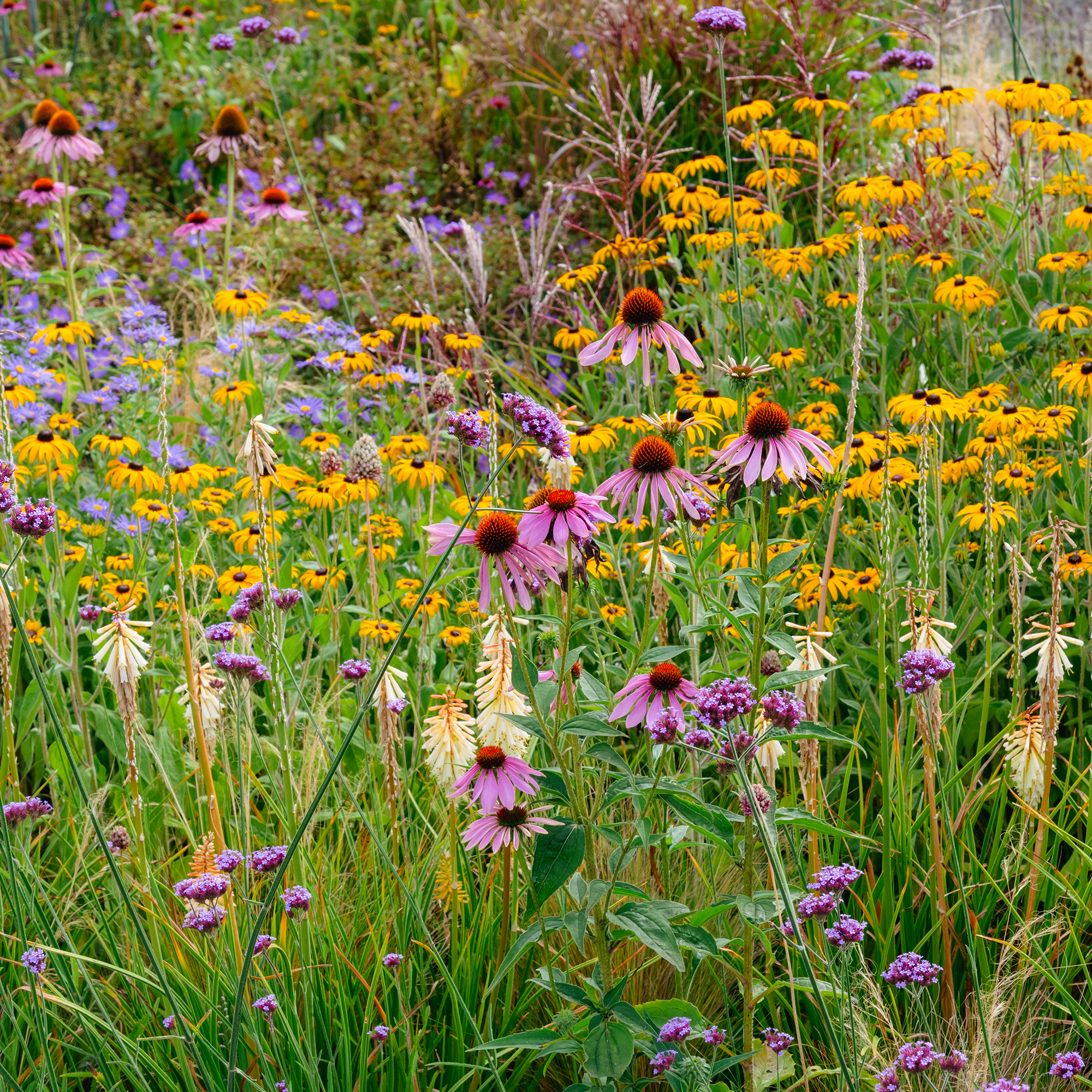 Grow Your Own Native Cut Flowers: 5 Planting Recipes for Beds & Pots
Grow Your Own Native Cut Flowers: 5 Planting Recipes for Beds & PotsEnjoy flower arrangements with blooms harvested from your own garden. These native planting combinations look beautiful and support wildlife.
By Ellen Wells
-
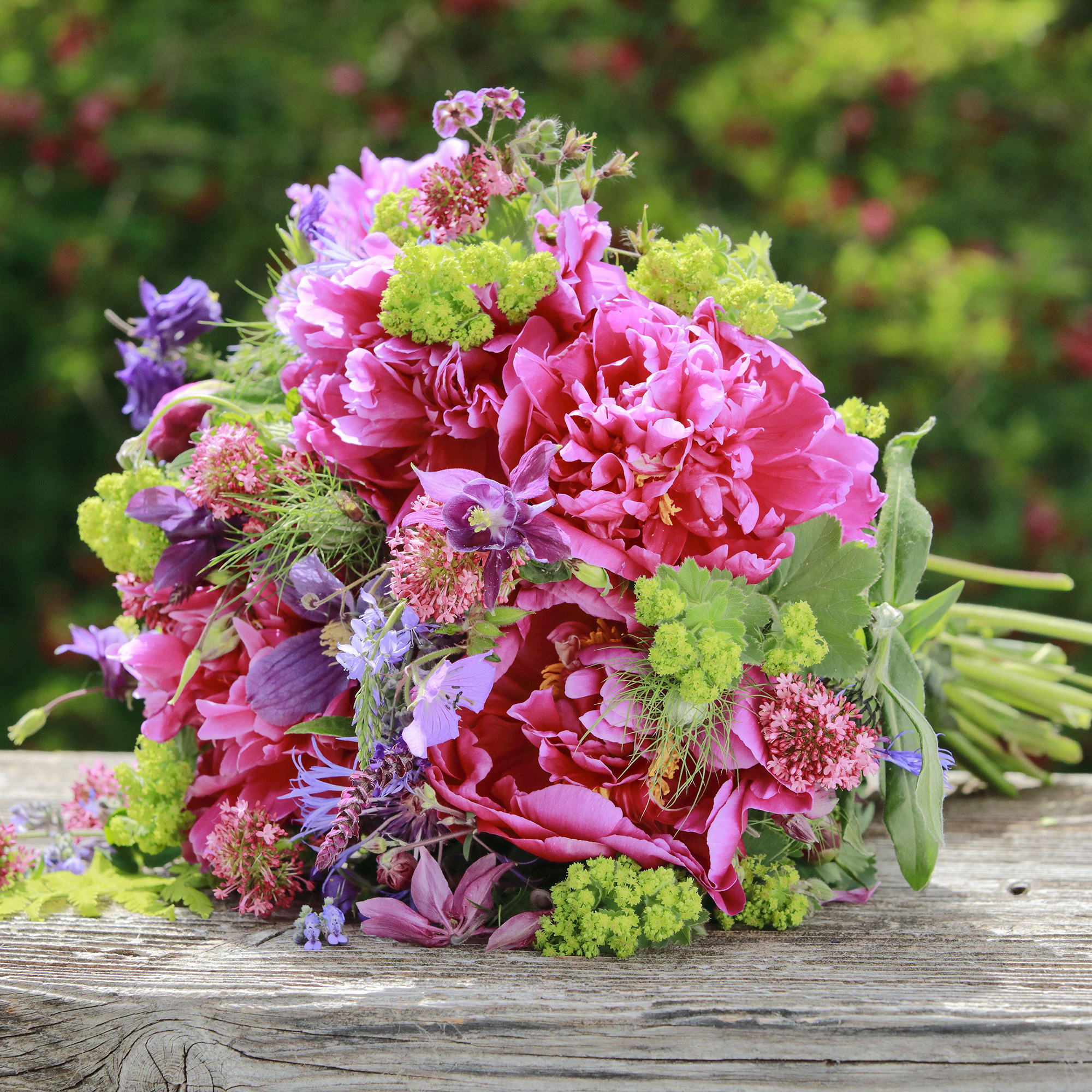 7 Cut-and-Come-Again Flowers To Grow In Your Garden
7 Cut-and-Come-Again Flowers To Grow In Your GardenGrow your own gorgeous cut flowers that you can harvest throughout the season. This pick of generous blooms will keep your vases occupied all summer long.
By Amy Grant
-
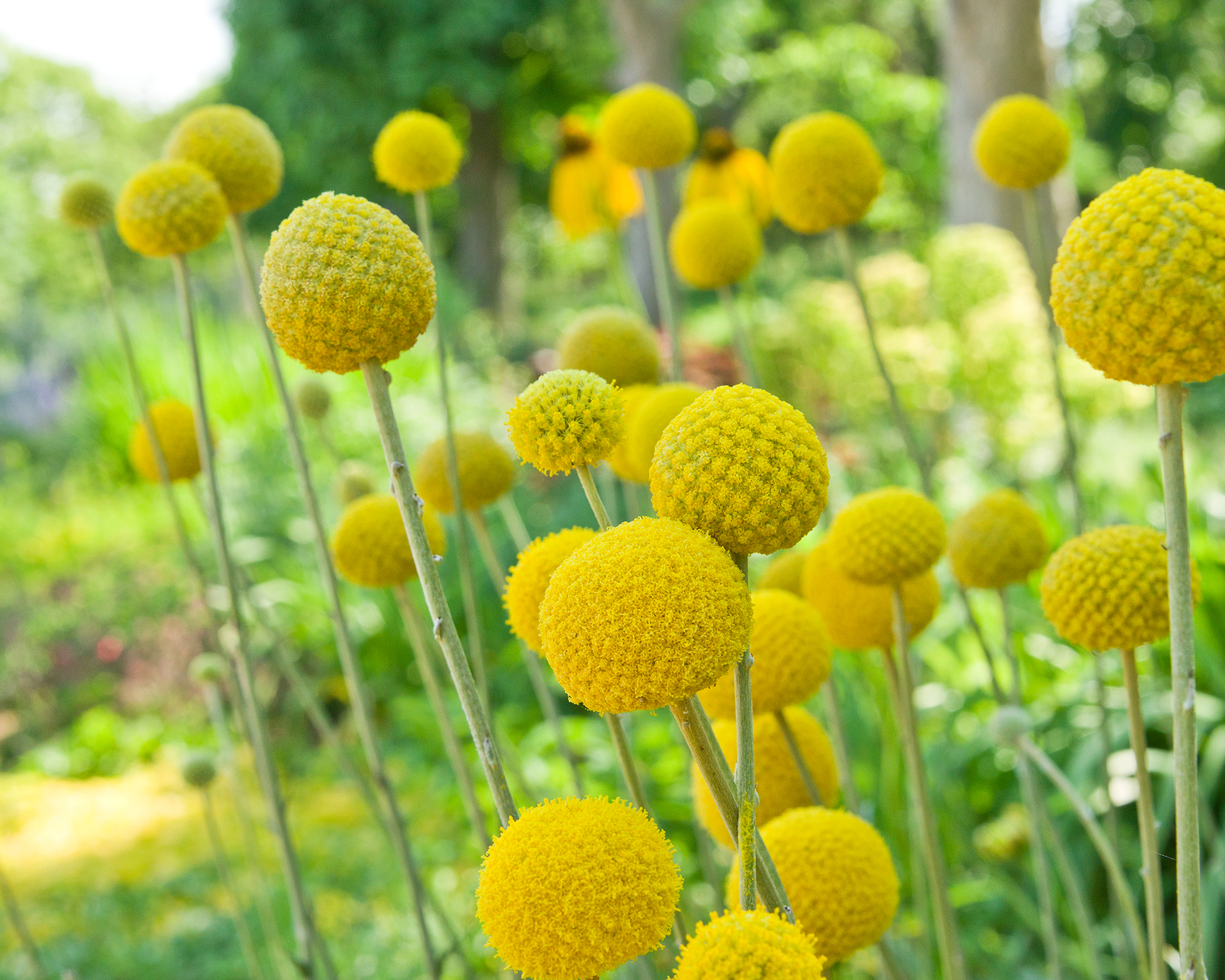 8 Unusual Flowers To Grow In Your Cutting Garden
8 Unusual Flowers To Grow In Your Cutting GardenAre you bored of traditional roses and peonies in your flower arrangements? Look beyond the obvious and plant these showstopping blooms in your cutting garden.
By Amy Grant
-
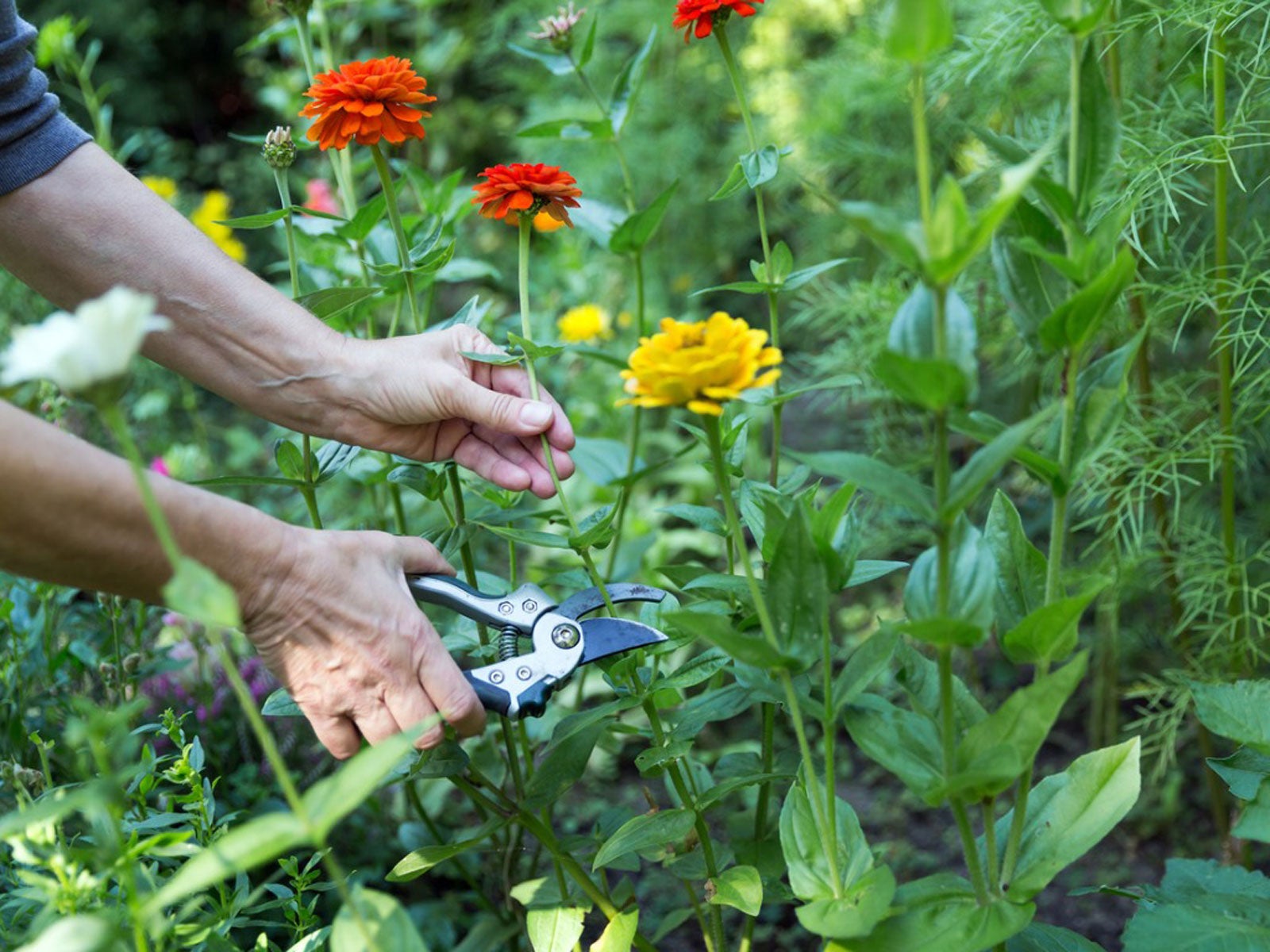 Harvesting Cut Flowers – How And When To Pick Cut Flowers
Harvesting Cut Flowers – How And When To Pick Cut FlowersSuccess in arranging your own cut flowers requires knowledge and consideration for the harvesting process. Get tips for cut flower harvesting here.
By Tonya Barnett